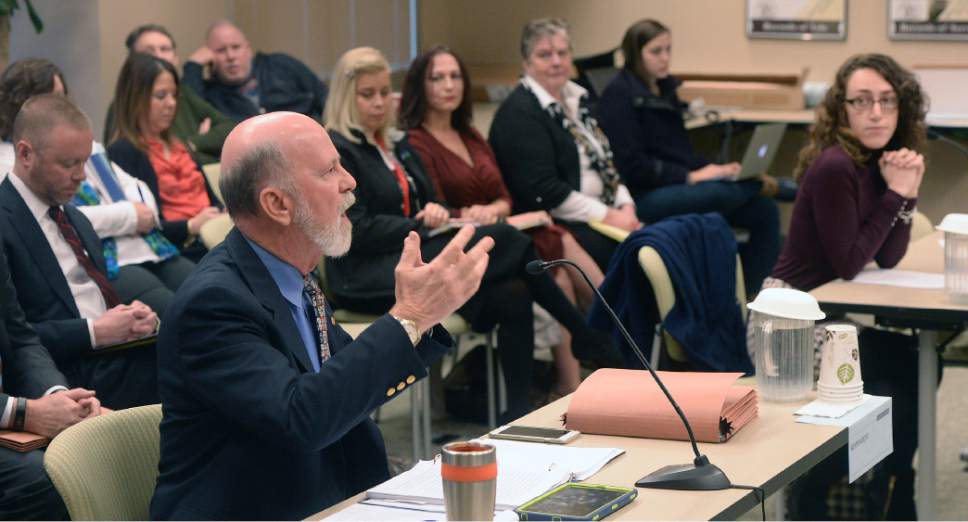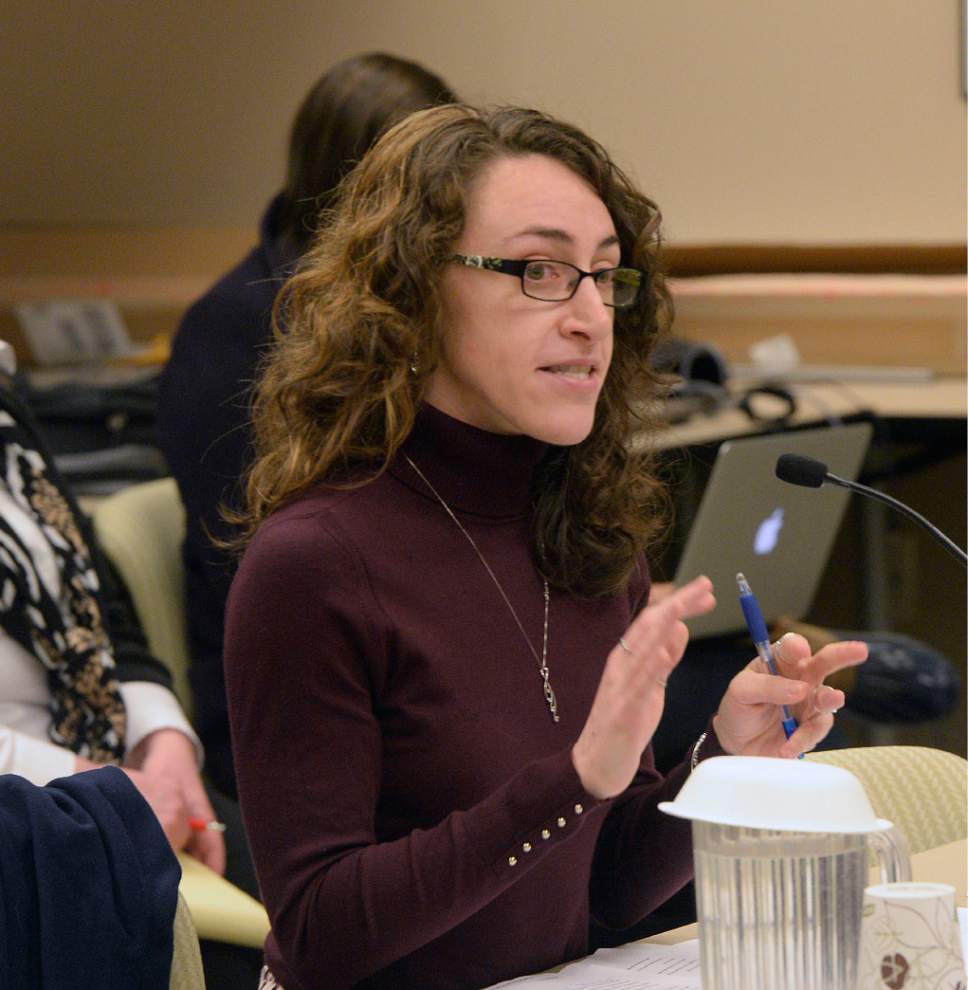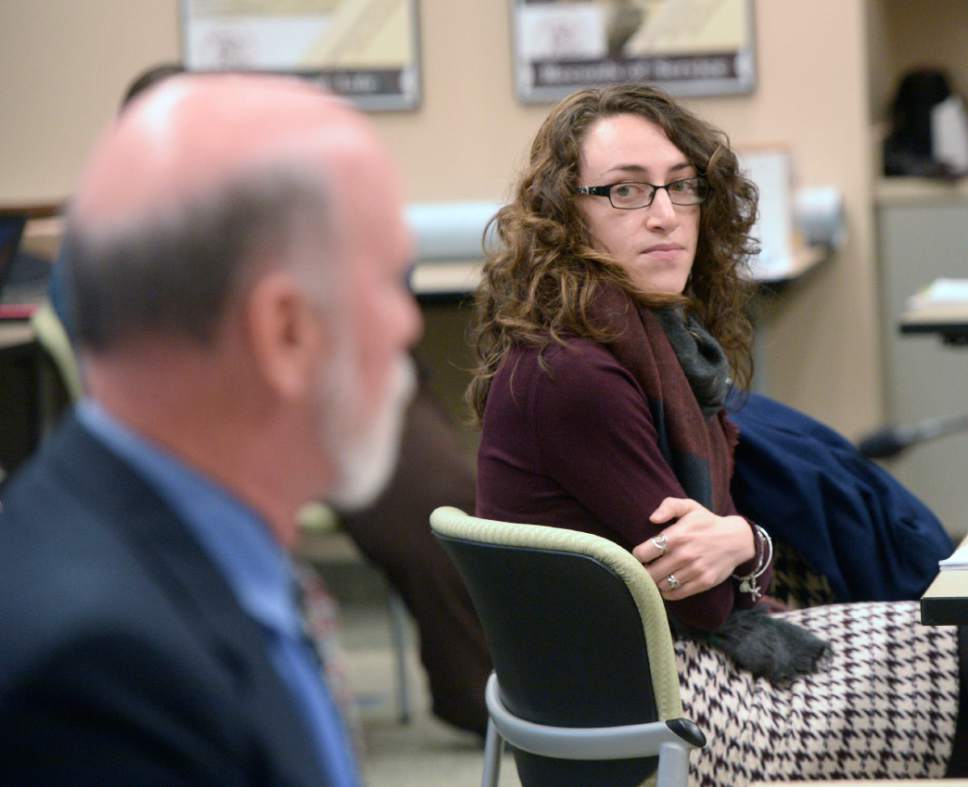This is an archived article that was published on sltrib.com in 2017, and information in the article may be outdated. It is provided only for personal research purposes and may not be reprinted.
Utah's Records Committee will take until February to determine if a 2-inch stack of documents prepared by a Utah State University attorney should be made public.
The documents, generated during an internal investigation into a series of sexual assault allegations against former USU student Torrey Green, were sought by The Salt Lake Tribune under the state's Government Records Access and Management Act, or GRAMA.
But while committee members voted to postpone that decision Thursday morning, they indicated that The Tribune had been improperly denied access to a second, and smaller, batch of documents that was presented to the university's Board of Trustees by the attorney who prepared them.
USU officials had argued the records were shielded from release under a provision protecting communications between lawyers and their clients — and that keeping information from the investigation out of the public eye was the reason the school chose to use its own lawyer.
But records committee member David Fleming said that the records — a document prepared by USU's lawyer with her thoughts on the investigation, and a Powerpoint presentation — "are not protected attorney work product" and also "call into question" whether the notes she used to prepare them are.
Tribune reporter Alex Stuckey's request for the records is part of the newspaper's ongoing investigation into USU's response to accusations of sexual violence.
In July, The Tribune reported that four women told Logan police in 2015 that they were sexually assaulted by Green, a USU football player. Three of the alleged victims were students and say they informed the school.
Green was not charged, and it appears that the school did not fully investigate the allegations or sanction him. Under Title IX, a federal law that prohibits sex-based discrimination in education, schools are compelled to take immediate action regarding potential threats to student safety.
After The Tribune's story, USU launched an internal inquiry into how the school addressed the allegations against Green. Green was cut from the Atlanta Falcons and eventually charged with six counts of rape, one count of forcible sex abuse and one count of aggravated kidnapping, stemming from seven alleged attacks — at least four involving other USU students.
"The public has a right to know what happened here and I think more importantly, the women have a right to know what happened," Stuckey told the State Records Committee on Thursday. "They don't know why the system failed them. They don't know why they did everything right in reporting to the school and nothing happened."
After finishing its inquiry, the university in August released recommendations for how it could improve its response to sexual assault.
The Tribune requested the inquiry and related records, but was told by the university that they were protected by federal student privacy laws and by attorney-client privilege, as the investigation was conducted by an attorney for the USU Board of Trustees.
Assistant Utah Attorney General Morris Haggerty reiterated that argument before the records panel Thursday, saying the university anticipated lawsuits related to the Green accusations, and required the advice and work of a legal professional.
"If you have an attorney conduct that investigation, then what the attorney does is protected," Haggerty said. "The only public document is the press release itself. We're not going to give you protected documents."
Haggerty said the university could have secured an outside entity to perform an open investigation. But USU elected to rely on internal counsel, he said, to intentionally maintain private records and determine what information would be released.
"One of the reasons you do it that way is to gain those protections, is to keep those from being public," Haggerty said. "Then the Board of Trustees can decide, the administration can decide, what they want to make public."
Stuckey argued that while other sex assault cases have resulted in lawsuits against the university, no legal action has been taken by Green's alleged victims. She also said her interviews with the alleged victims indicate that USU's attorney did not contact the women at the center of the cases.
"We have no idea the scope of who they spoke with and what they found to be at issue and why a potential serial rapist was permitted to stay on campus," Stuckey said.
The Records Committee's chairwoman, Patricia Smith-Mansfield, also questioned whether the potential for lawsuits justified the sealing of what would otherwise be public records.
"You're making an assumption," Smith-Mansfield said to Haggerty. "But wouldn't there have been an investigation on these assaults and recommendations made regardless of whether there were threats of litigation?"
The committee conducted a brief closed session during Thursday's meeting to review the smaller set of USU documents, which consisted of a presentation and report that USU's attorney made to the board of trustees following the internal probe.
The larger set of documents, which the committee will review prior to its meeting Feb. 9, consists of notes and files from the investigation, which were used to prepare the smaller set of documents.
Twitter: @bjaminwood







